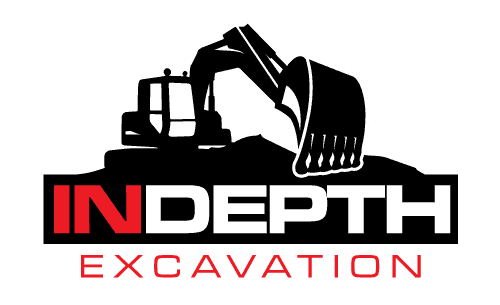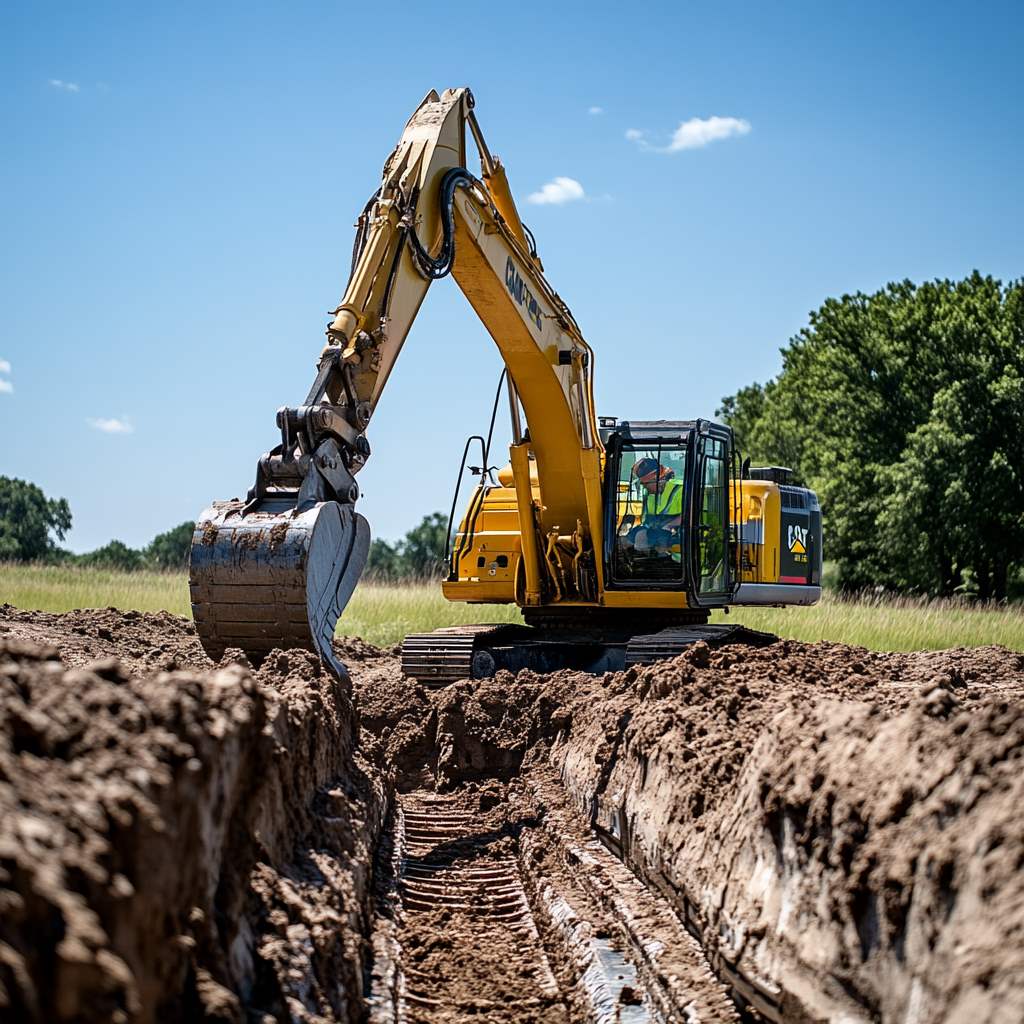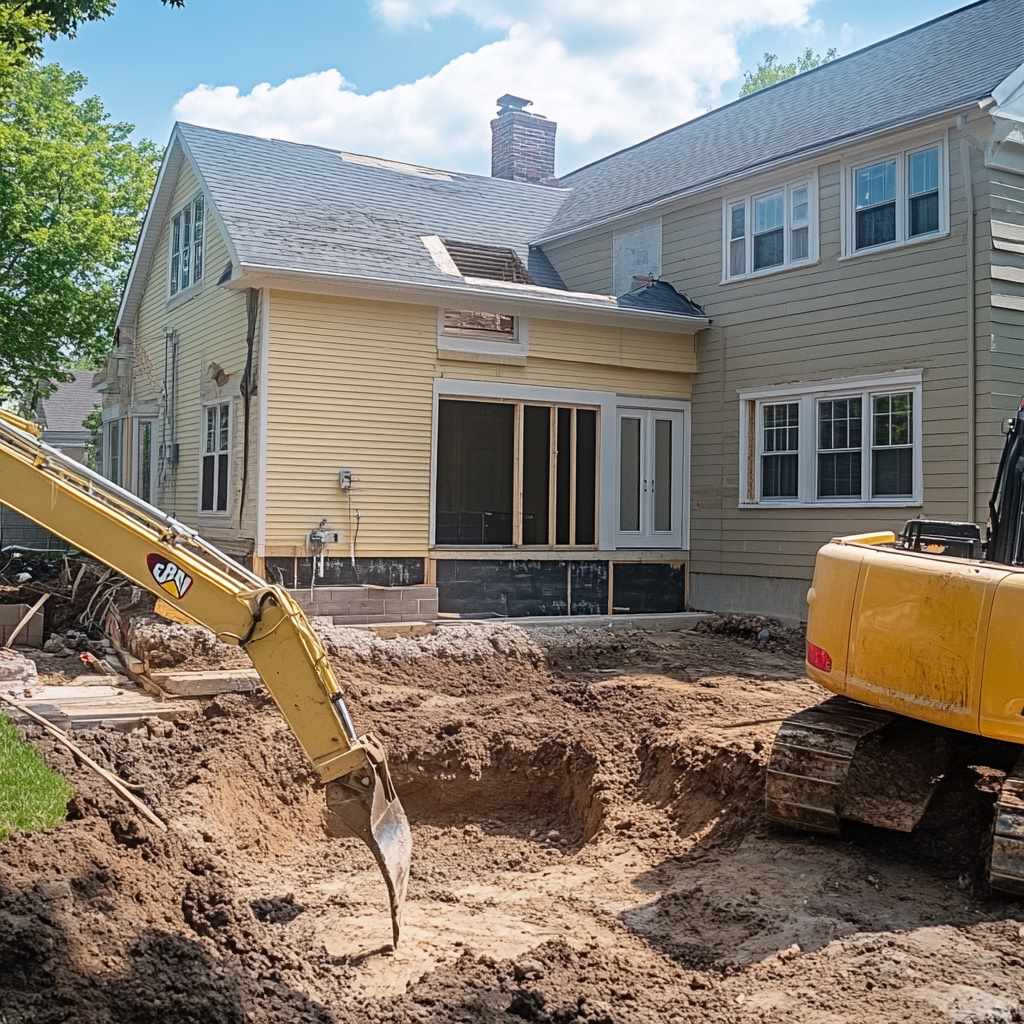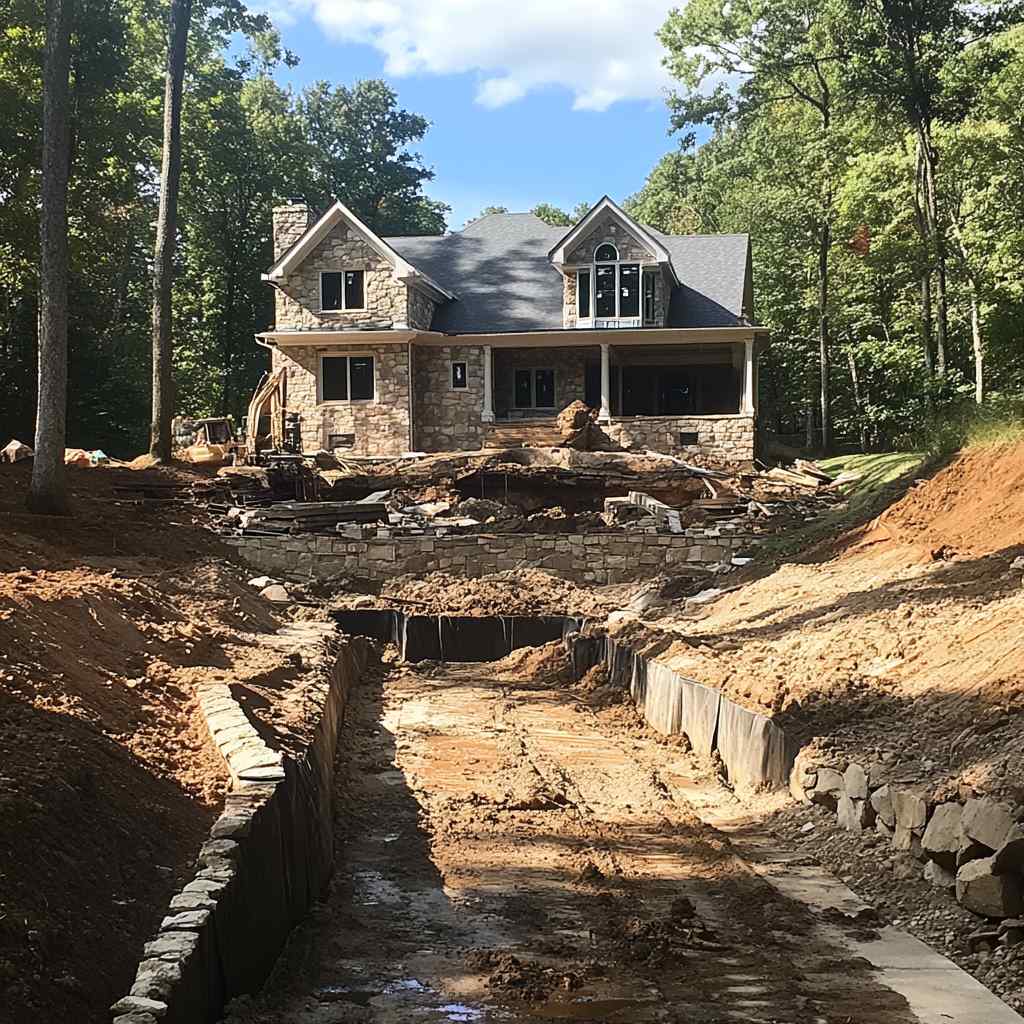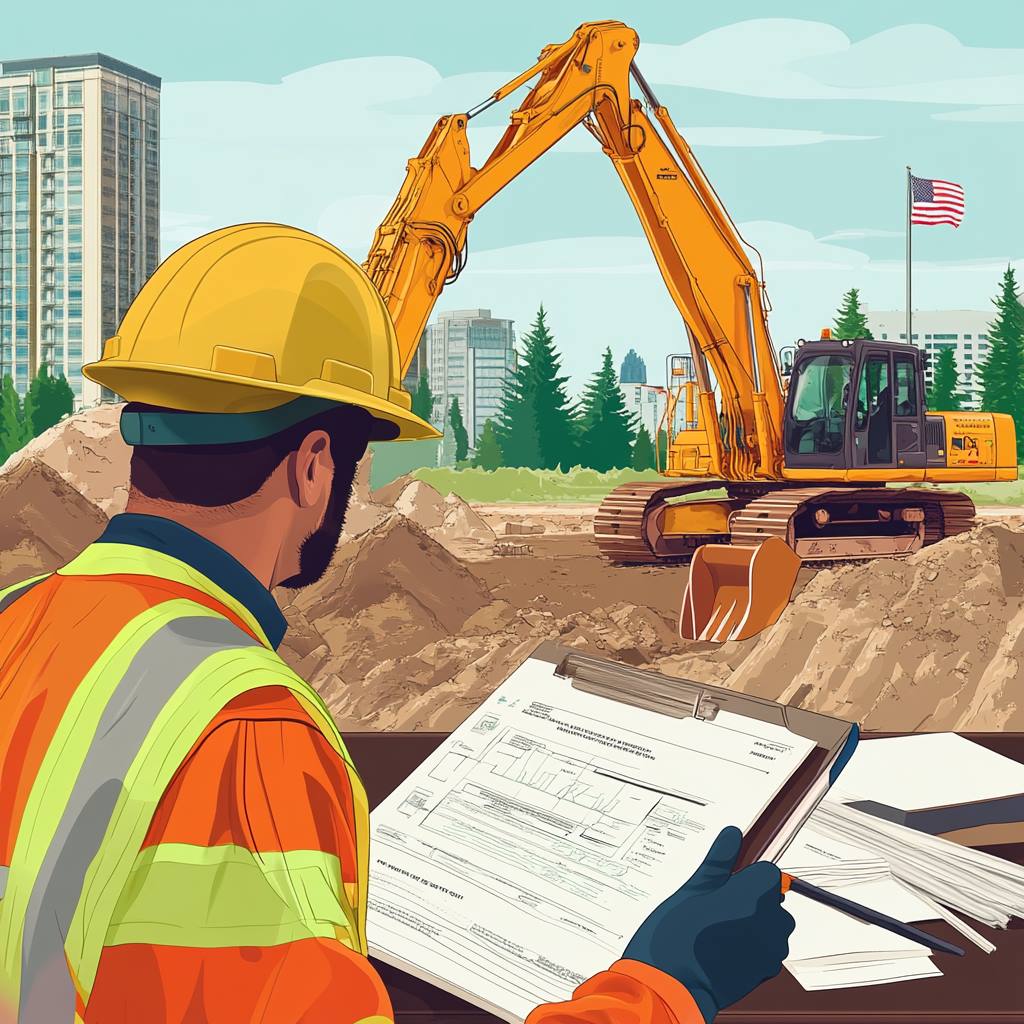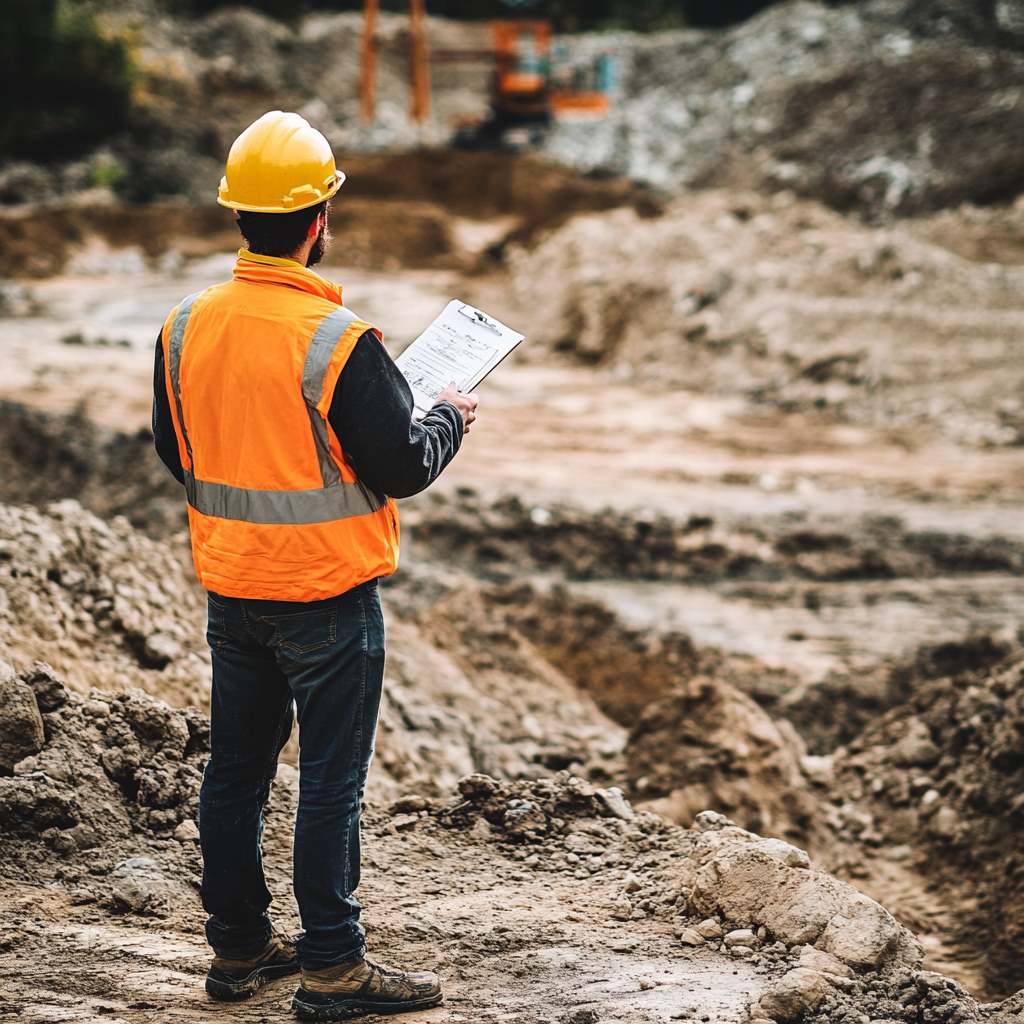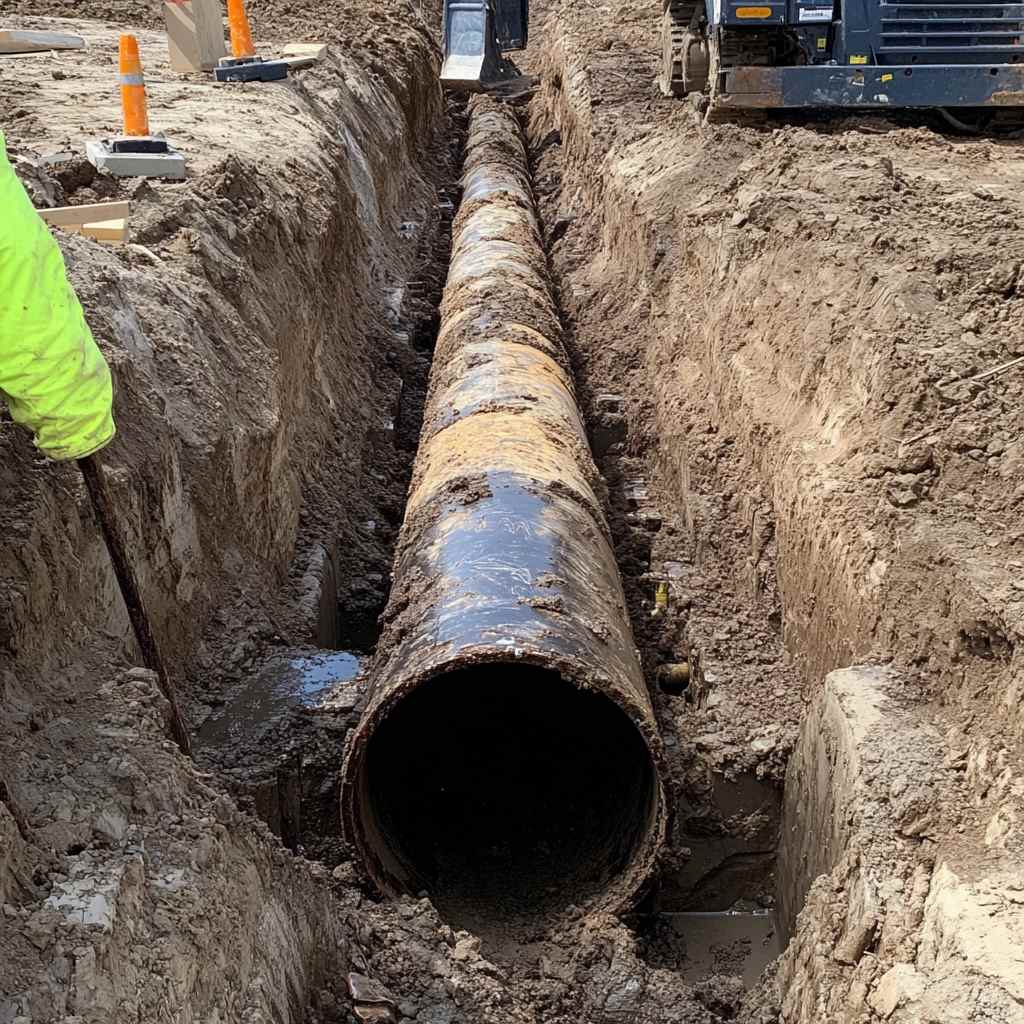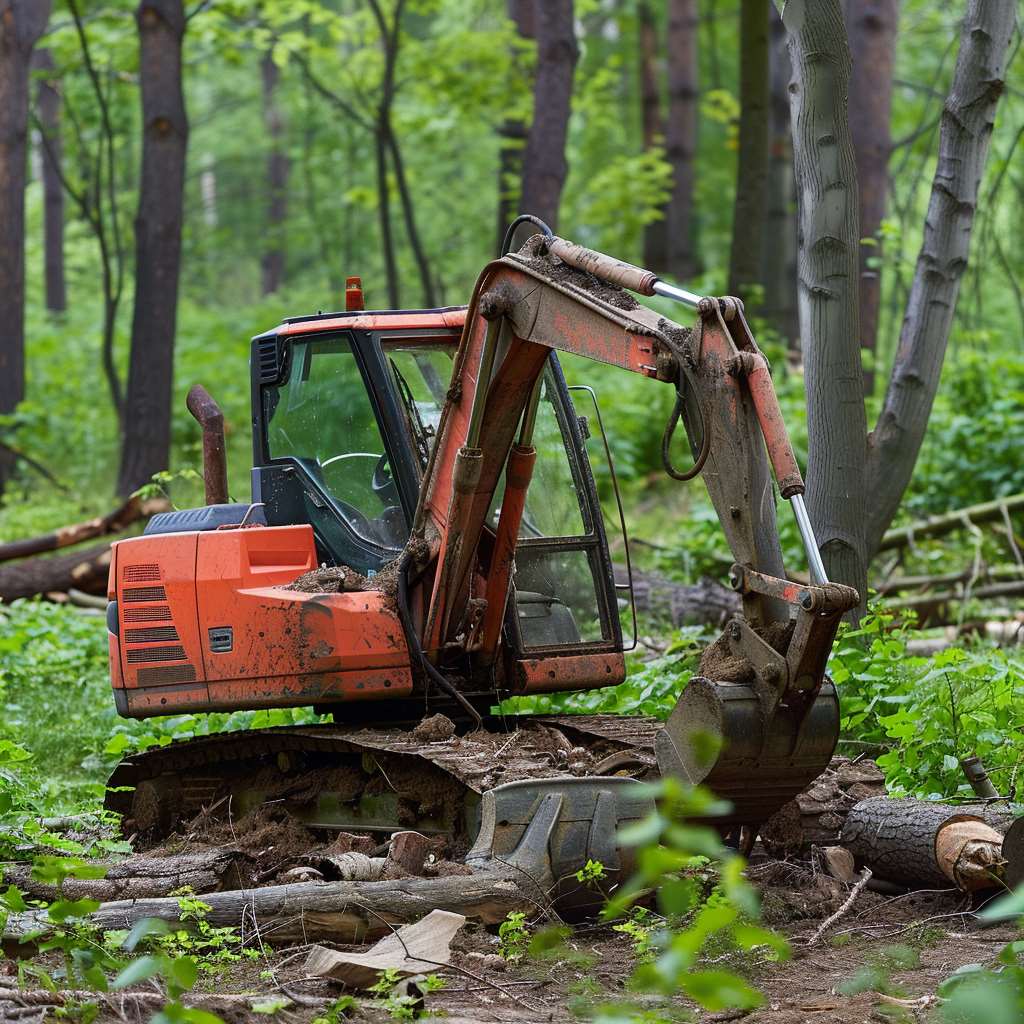When starting on a construction project, it’s easy to focus on the visible elements, the architectural design, the materials, the finishing touches. However, the true success of any building starts deep below the surface. Indepth Excavation is the quality excavation that is the bedrock upon which every successful construction project is built. It’s the critical first step that makes sure your structure stands strong, safe, and enduring for years to come.
The Role of Excavation in Construction
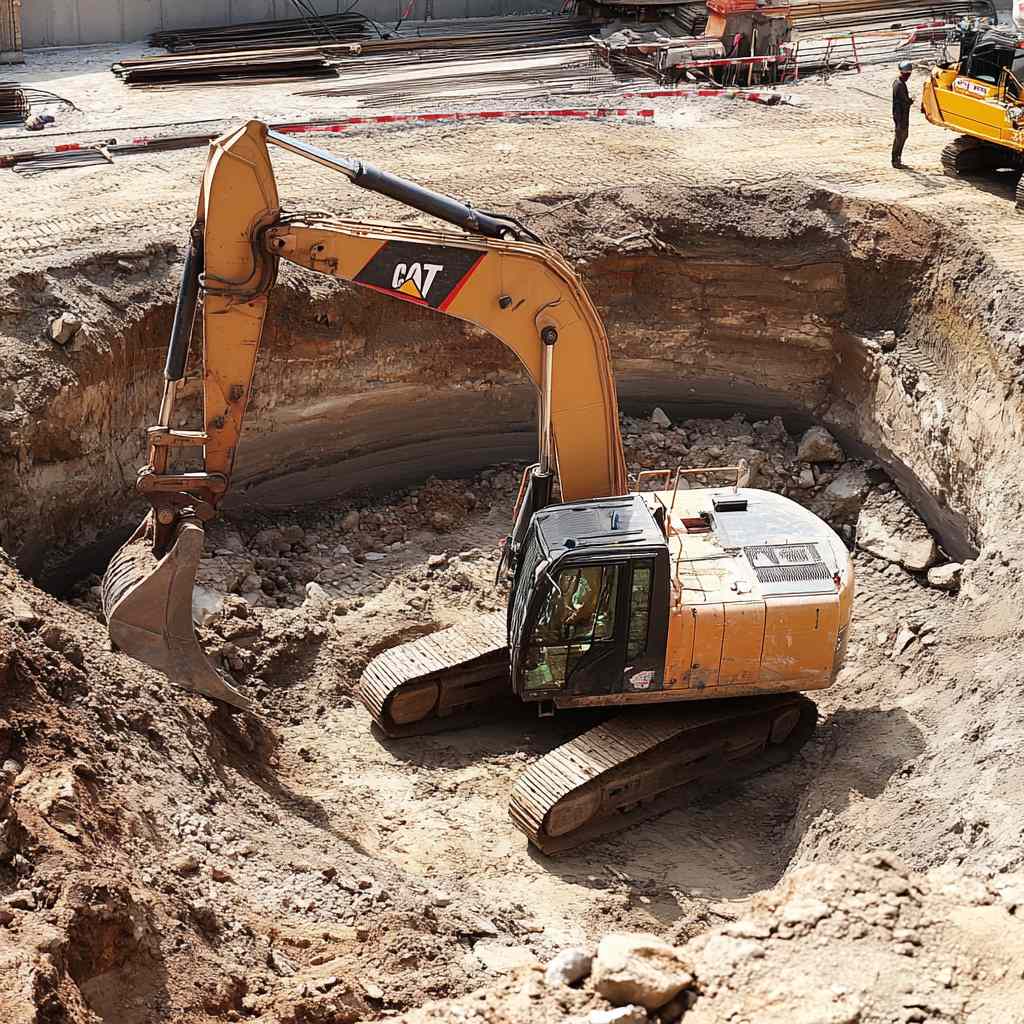
Excavation is far more than just moving the earth; it’s a skill that lays the groundwork for the entire construction process. It involves careful planning, skilled execution, and a deep understanding of the land.
Setting the Stage for Stability
- Foundation Preparation: Quality excavation makes sure that the foundation sits on stable ground, preventing uneven settling and structural imbalances.
- Risk Mitigation: By properly excavating, potential hazards like underground utilities or weak soil pockets are identified and addressed before construction begins.
The Perils of Poor Excavation
- Structural Instability: Shoddy excavation can lead to shifting foundations, causing cracks in walls, uneven floors, and compromised structural integrity.
- Costly Repairs: Issues stemming from poor excavation often require expensive measures, sometimes needing partial or complete rebuilding.
- Safety Hazards: Structural failures not only damage property but also pose significant risks to occupants and workers.
Importance of Accurate Site Preparation
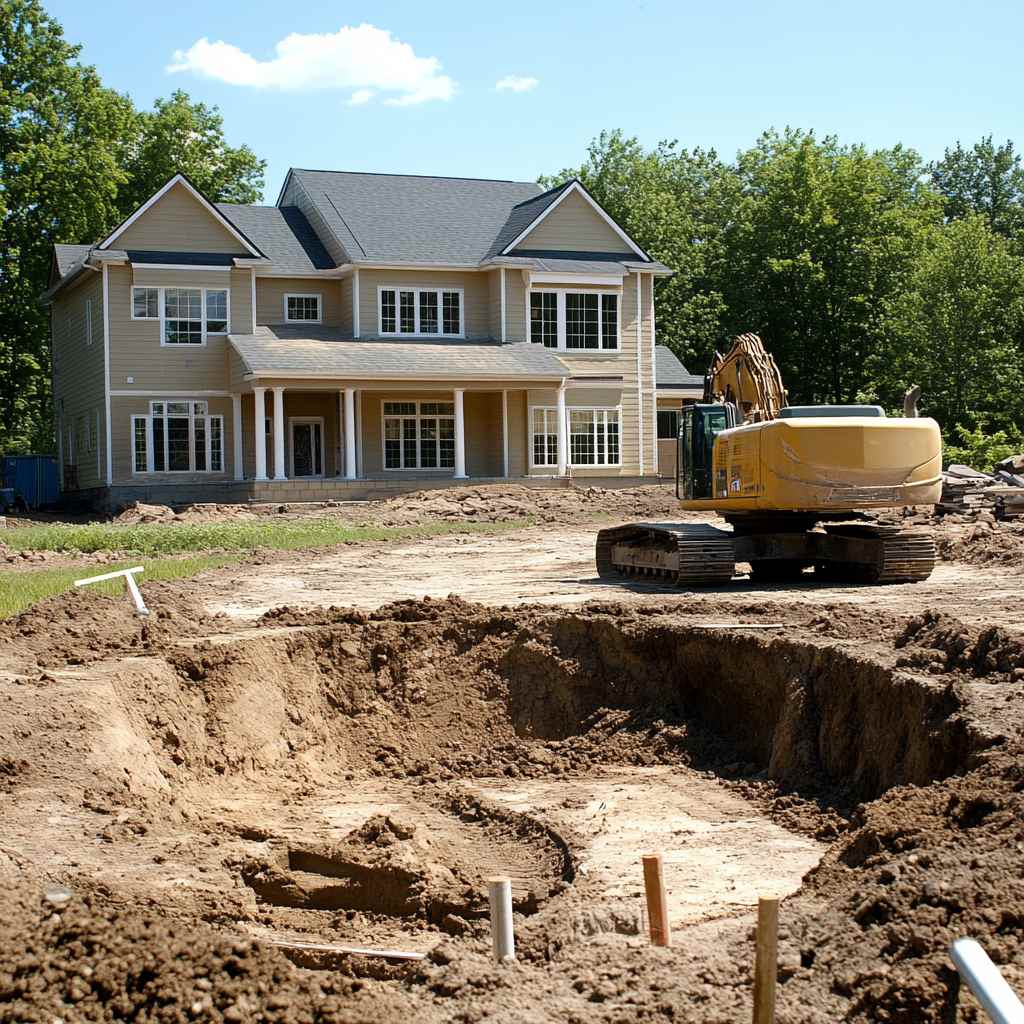
Accurate site preparation is the cornerstone of a smooth and proper building process. Before a single brick is laid or beam placed, the construction site must be carefully prepared to guarantee the stability and integrity of the structure.
Proper site preparation involves land clearing, leveling, grading, and soil compaction. Removing trees, stumps, rocks, and debris gets rid of obstacles that could interfere with construction or future stability. Creating a flat and even surface supports the structure as it should be, preventing stress points and uneven load distribution. Compacting the soil increases its density and load-bearing capacity, reducing the risk of future settling.
Addressing Soil Conditions and Their Impact on Construction
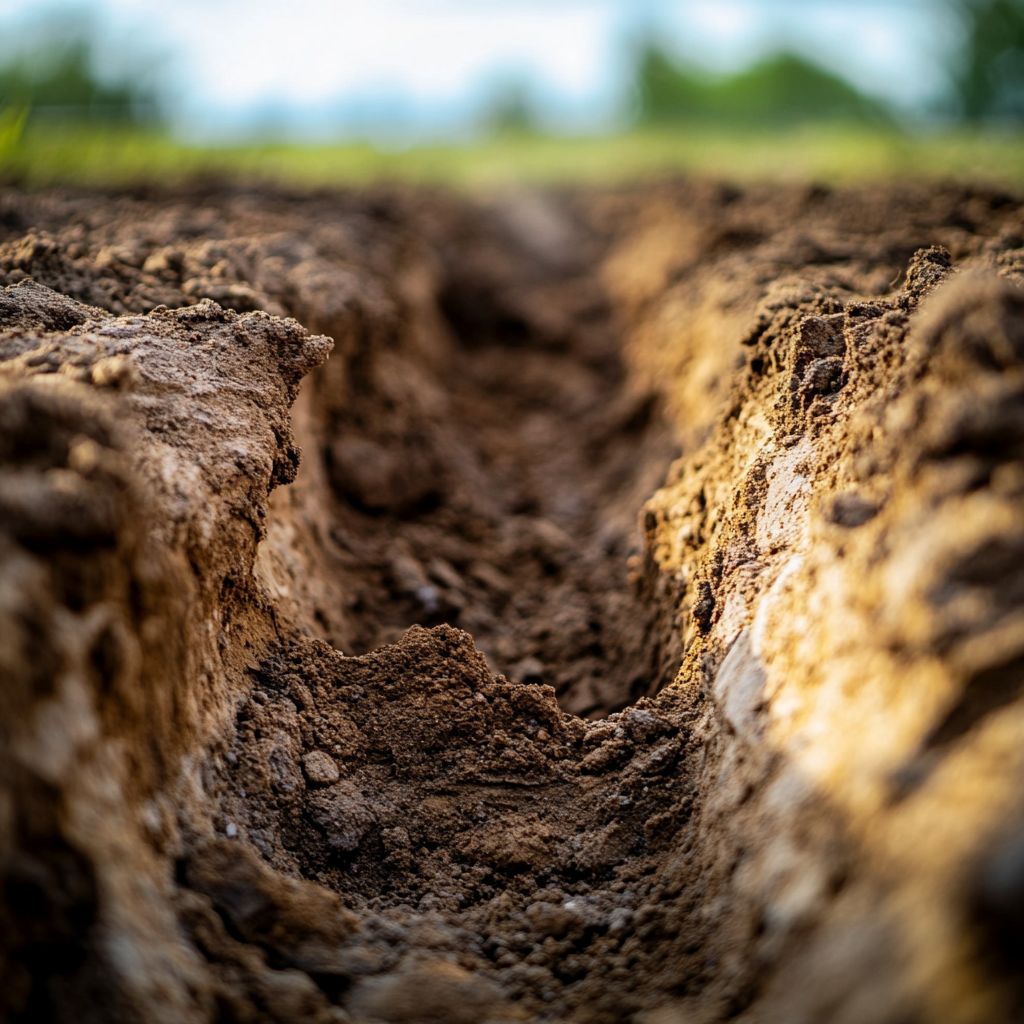
Understanding the soil beneath your construction site is important. Soil conditions directly affect the excavation process and the long-term performance of the structure.
The Necessity of Soil Testing
Soil testing is a critical step in the construction and excavation process, ensuring that the ground is stable enough to support your project. Here’s why it’s essential:
Identifying Soil Type: Knowing the type of soil on your property (whether it’s clay, sand, silt, or a mixture) is important for determining how the soil will behave under load. Different soils react differently to pressure and moisture, so identifying the soil type helps in planning the right foundation or drainage system.
- Clay soils are often heavy and dense, while sand tends to be lighter and offers better drainage. Silt can become slippery when wet, affecting stability. Each type requires different considerations when planning construction.
Assessing Bearing Capacity: This aspect of soil testing measures the soil’s ability to support the weight of a building or structure. Ensuring the soil has sufficient bearing capacity is key to preventing foundation settlement or shifting over time. If the soil can’t bear the intended weight, adjustments in construction methods or foundation type may be necessary.
Detecting Moisture Levels: The moisture content in soil directly affects its strength and stability. High moisture levels can cause soil to weaken and increase the risk of settlement or erosion. It’s important to assess moisture levels to determine if drainage solutions or soil stabilization are required to prevent future issues.
Impact of Different Soil Types
Understanding how different soil types behave is essential to ensuring a stable foundation and long-lasting construction. Here’s how various soils impact your project:
Clay Soils: Clay soils are known for their ability to expand and contract depending on moisture levels. During wet seasons, clay swells, and during dry spells, it shrinks. This constant change can cause movement in the foundation, leading to cracks, uneven settling, and potentially damaging structural shifts. Extra care and stabilization techniques may be needed for these soils.
Sandy Soils: Sandy soils generally offer excellent drainage, which is beneficial for avoiding water buildup and potential flooding issues. However, they may not provide enough support for heavy loads on their own. To ensure proper foundation stability, sandy soils often require additional compaction or reinforcement to achieve the necessary support for structures.
Silty Soils: Silty soils consist of fine particles that retain moisture more than sand but less than clay. When wet, silty soils can become unstable and lose their load-bearing capacity. This makes them tricky to work with, as their strength can vary depending on weather conditions. Special care must be taken to handle silty soils during construction, and they may need reinforcement or stabilization to avoid instability.
Mitigating Soil-Related Risks
To address the challenges posed by different soil types, there are several methods that can be used to stabilize and support construction projects:
Soil Stabilization: For soils that lack sufficient strength, stabilization techniques can be applied. These methods, such as mixing lime or cement into the soil, can increase its load-bearing capacity and reduce the risk of soil movement. Stabilization is especially helpful for soils with high clay or silt content, which may be prone to expansion or erosion.
Deep Foundations: In cases where the upper layers of soil are unstable or unable to bear weight, deep foundations such as piling or pier foundations can be used. These methods transfer the weight of the structure to deeper, more stable layers of soil, providing additional support and preventing settlement issues in the upper layers.
Drainage Solutions: Garaunteeing proper drainage is essential for maintaining soil stability. By preventing excess water from accumulating around the foundation, drainage solutions (such as French drains, sump pumps, or proper grading) can help maintain the integrity of the soil. Effective drainage reduces moisture fluctuations in the soil, preventing the issues caused by excessive moisture levels or waterlogging.
By addressing soil conditions proactively, you guarantee the foundation remains solid and the structure performs as intended.
Precision Grading and Drainage Solutions
Water is one of the most destructive forces when it comes to a building’s foundation. Without proper management, excess water can infiltrate the ground around your home, causing a range of issues from soil erosion to cracks and settling in the foundation. This is why precision grading and effective drainage solutions are critical components in quality excavation and construction projects.
Precision Grading:
Precision grading involves shaping the land around the foundation to create specific slopes and contours that channel water away from the structure. This careful planning prevents water from pooling near the foundation, which can lead to soil instability, erosion, and structural damage over time.
Grading also ensures that rainwater flows in the right direction, away from the building and into proper drainage systems. By creating the right slope, precision grading safeguards your foundation against the risk of water infiltration and damage.
Effective Drainage Solutions:
To complement grading, implementing effective drainage systems is essential for handling both surface and subsurface water. Several drainage options work in tandem to manage water effectively:
- French Drains: These perforated pipes, typically buried in gravel trenches, are designed to redirect groundwater away from the foundation, reducing the risk of basement flooding and soil erosion.
- Retaining Walls: Retaining walls are often used in areas where there is a significant change in elevation. These walls help to prevent soil movement and keep water from eroding the landscape behind them, while also managing water flow.
- Swales: Swales are shallow, grassy channels designed to manage surface water runoff. They direct rainwater to where it can safely be absorbed or funneled into a drainage system, helping to prevent pooling and erosion.
- Culverts: These are drainage pipes or tunnels used to channel water under roads, driveways, or paths, ensuring that water doesn’t accumulate in unwanted areas and disrupt the surrounding landscape.
Protecting the Foundation and Landscape:
By using a combination of precision grading and these drainage solutions, you not only protect the foundation from water-induced damage like cracking, settling, or shifting, but also help to preserve the surrounding landscape. Preventing soil erosion is equally important, as it keeps the ground around your property stable, maintaining both the integrity of the foundation and the visual appeal of your landscape.
These water management measures are vital in garaunteeing the long-term health of your property, providing protection against costly foundation repairs and the erosion of valuable outdoor space.
Excavation for Utility Placement
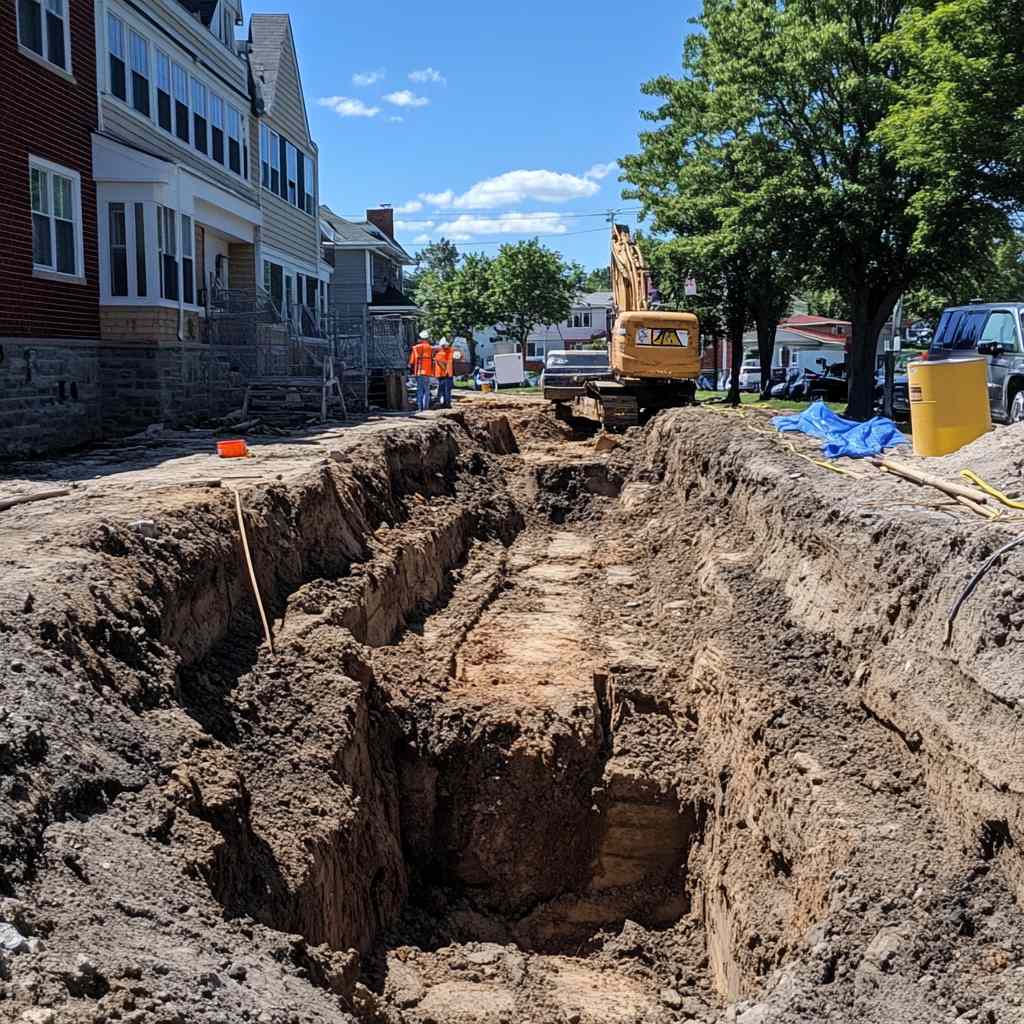
Proper utility placement is critical for the functionality and safety of any building. Quality excavation makes sure that utilities like water lines, sewer systems, and electrical conduits are installed correctly, safely, and efficiently.
Proper utility placement involves precise digging for utility lines to prevent future disruptions or damage, adhering strictly to local codes regarding the depth and location of utilities.
The risks of improper utility placement are significant. Incorrect installation can lead to service interruptions, resulting in frequent outages or failures that disrupt daily operations. There are serious hazards associated with misplaced electrical or gas lines, including the potential for fires or explosions, posing safety risks to construction workers and future occupants.
By investing in professional utility excavation, you gain numerous benefits. Efficiency is enhanced through proper planning and execution, reducing installation time and costs. Reliability is improved because correct placement minimizes the risk of future breakdowns or repairs.
The Long-Term Benefits of Professional Excavation
Investing in professional excavation services yields dividends throughout the life of your construction project and beyond. By guaranteeing enhanced structural integrity through foundation stability and durability, you extend the lifespan of the structure. Project efficiency is increased as experienced teams anticipate challenges and streamline the excavation process, preventing unforeseen expenses due to delays or mistakes.
By choosing Indepth Excavation, you’re selecting a partner committed to excellence. Our expertise, dedication, and comprehensive services make sure your project not only starts on solid ground but remains strong for years to come.
Ready to Lay the Foundation for Success?
Don’t leave the most critical phase of your construction project to chance. Contact Indepth Excavation today, and let’s build the future together, starting from the ground up.
About Indepth Excavation
At Indepth Excavation, we specialize in providing top-tier excavation services tailored to meet the unique needs of each project. Our team of experts is equipped with the knowledge and tools to tackle any challenge, making sure your construction project has the solid foundation it deserves.
- Phone: 425-367-1521
- Email: [email protected]
- Website: www.indepth-excavation.com
By choosing quality excavation services, you’re investing in the success and longevity of your construction project. Let Indepth Excavation be the foundation of your next venture.
